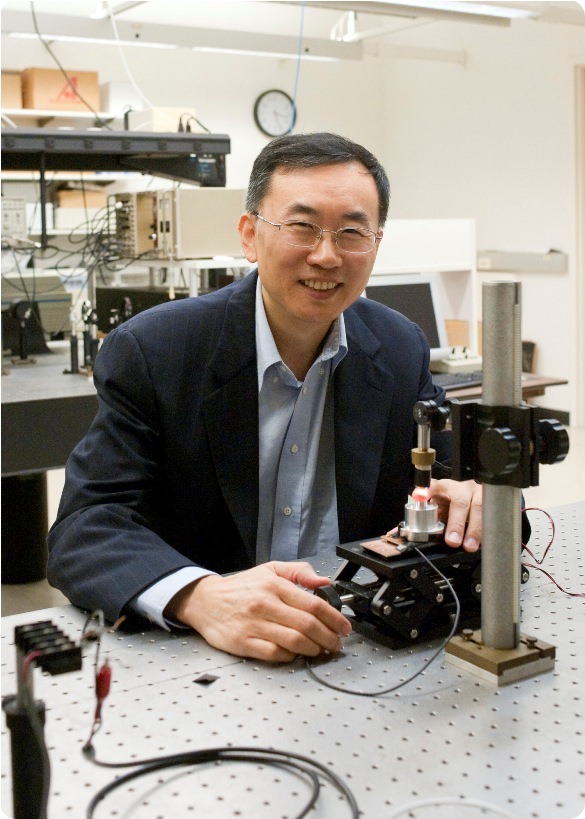Mar 30 2011
People with diabetes could soon have a pain-free way to check their blood glucose levels. Researchers at the University of Missouri–St. Louis have developed a portable, inexpensive non-invasive blood glucose detector. The university has licensed patent rights for the device to St. Louis Medical Devices, Inc., a Missouri company headquartered at UMSL’s own startup company incubator – IT Enterprises, to bring the device to market.
The small monitor will allow for pain-free, convenient detection of glucose levels in capillaries of the finger with no waste (strips, lancets, etc.) and no need to draw blood. It tests blood characteristics by shining near-infrared light through the finger, detecting the light transmitted through the targeted area, and generating an output signal. A processor receives the output signals, calculates a change in the magnitude of light power transmitted through the finger and determines a characteristic of blood – in this case glucose. Future applications of the device could include other blood analytes such as cholesterol.
Zhi Xu, associate professor of chemistry and biochemistry at UMSL, is lead researcher for the project, and notes that many researchers and companies have worked to develop a non-invasive glucose monitor, especially since the mid-1980s. Xu said this technology overcomes the obstacles others have faced trying to measure blood glucose optically through the skin.
“Unlike other non-invasive monitors in development, this technology provides for detection in just one second; it’s portable, accurate and inexpensive; it measures glucose in blood rather than interstitial fluid without the need to average multiple readings; and it does not require any moving parts,” Xu said. “There have been 25 years of attempts to create such a non-invasive glucose monitor. I think we’ve done it.”
Diabetes is a disease in which the body either does not produce insulin (Type 1 diabetes) or does not properly use insulin (Type 2 diabetes). Blood glucose monitoring plays a critical role in the treatment of diabetes, and frequent measurement has been shown to significantly decrease the risk of negative health outcomes such as damage to the nerves, blood vessels, eyes, kidneys and heart. Approximately 24 million people in the U.S. had diabetes in 2007, according to the National Institutes of Health. The disease is the seventh leading cause of death in the U.S. Worldwide, 180 million people have diabetes; the World Health Organization estimates that number will grow to 366 million by 2030.
“We are thrilled this technology is licensed and well-positioned to be brought to market by a Missouri company,” said Tamara Wilgers, director of technology commercialization and economic development at UMSL. “St. Louis Medical Devices will take the device into the next stage in clinical testing and approvals, as well as produce and sell the product to get it into the hands of those who need it most.”
Nasser Arshadi, vice provost of research administration at UMSL, said this is the perfect example of how academic technology transfer works to benefit the public.
“The ingenuity began with researchers here at UMSL, discoveries were then licensed to a start-up company, and now the work will benefit not only the St. Louis region, but potentially millions of people around the world,” he said.
The non-invasive glucose monitor is based upon multiple inventions from Xu’s lab that are either patented or pending patents in the United States and other countries.